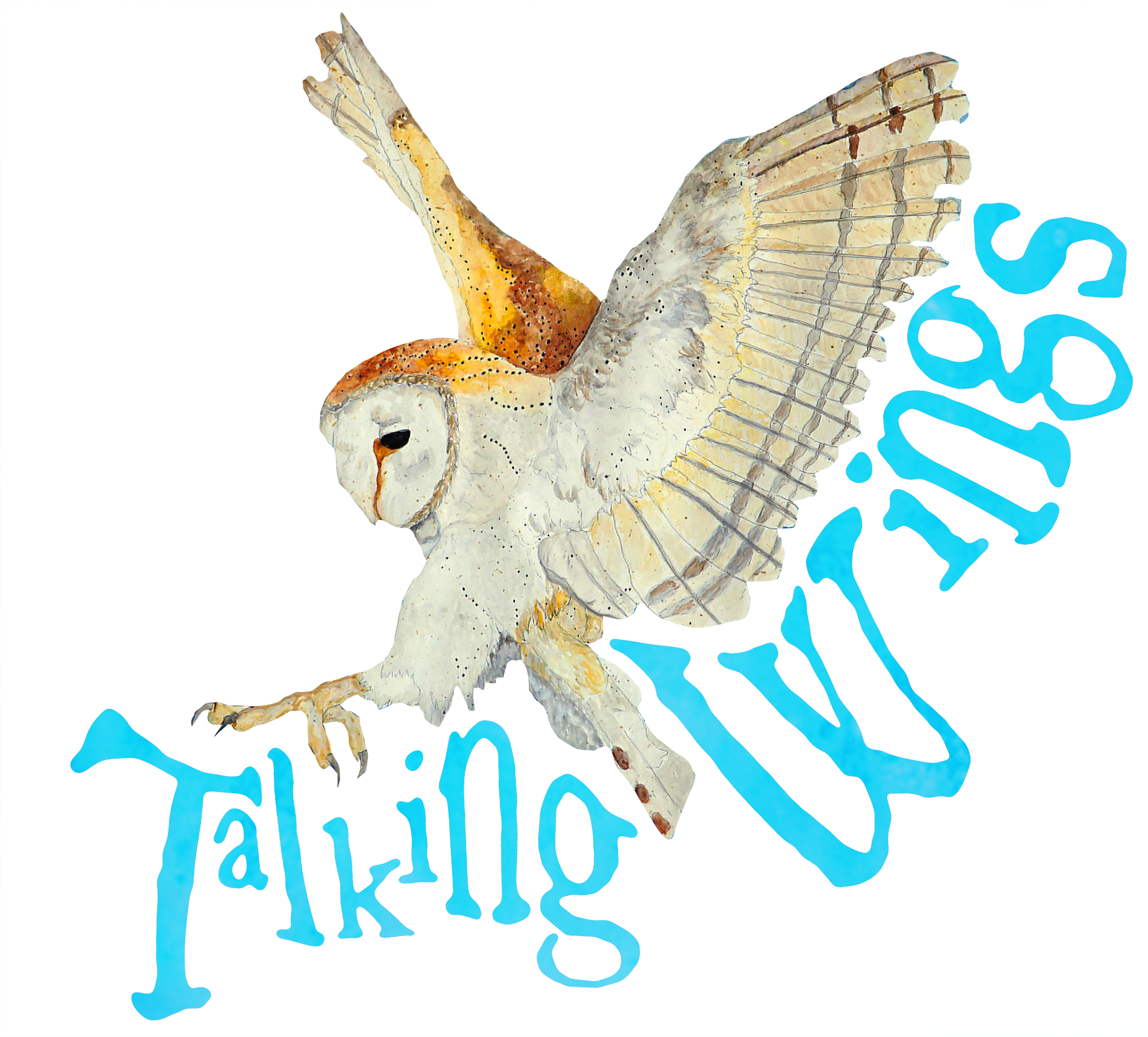"In the beginning" (2024) - watercolor and pen - by Blake Lavia
It stands at the edge of the water, a strange construction. It seems to have eyes, black like the night. At times, when the sun shines on the water, I can see inside that improbable skull. It has changed over time. It seems to be peeling, slowly disintegrating, but still standing, always standing. I have asked the Lake, my lovely immense home, what is it, this odd thing that doesn’t look like anything else I’ve seen. It might have been plopped there, placed on the earth by an alien god, and then forgotten.
I still have a hard time believing the Lake’s story, but who am I to judge. This Lake has been here for much longer than I have, and I have been here a long time. Water carries many memories. Sometimes, the memories come from far away, brought by rain and snow, while others are brought in by the rivers and streams that trickle down from the mountains or originate in faraway valleys. Most of the memories, however, are stored right here, in the soil, in the roots of the plants that grow under the surface or along the banks. The Lake knows, the Lake remembers, the water flows, but the memories stay.
So, this is what the Lake told me, when I asked what the mysterious object was. A long time ago, when there was even more water in the world, there lived a species that called themselves human beings. They walked on land, like the wolves, the foxes, the deer, and the lynx. There were many of them, “too many,” the Lake says. They built things that move, like the mysterious object I like to admire. Some of those things traveled on land, others flew up high in the sky.
“They were always transporting things,” the Lake says. “And with what they transported; they built more things. Sometimes, they also made big holes in the ground, and took everything they could find, and brought it somewhere else. They were always doing things, always doing things.”
It has taken me a while to understand what the Lake really thought of these human beings. At times, I believed the Lake hated them. Other times, the Lake just sounded sad, almost as if they pitied the species that built and moved so fast. I have never seen a human being, and many of my friends report the same. There’s only this object that stands here, alone, by the shore, waiting for those who built it to use it once more. Nobody has come to retrieve it, and as we all grow older, I don’t think anyone will come to use it again. It’s fading, anyway, slowly breaking, slowly ageing.
“What happened to the humans? Where are they now?” I have often asked the Lake, for I like to hear the story repeated. The Lake always sighs, and the water sways, lulling me in the currents of their immense body.
"The Lake Sighs" (2024) - watercolor, watercolor pencil and pen - by Tzintzuni
“I saw them peter off, even though there were so many. My water wasn’t drinkable for a long time, they had made it green,” the Lake tells me. “The humans got sick, but that wasn’t the only problem. The temperatures rose, the snow and ice disappeared, the forests burned, and we thought that we had lost it all.”
“So, there are no more humans now,” I always ask, even if I already know the answer.
“No,” the Lake says, with infinite patience, for water is patient when you want to listen to their story. “There are still humans, just not here, in this corner of my water. They are way fewer, and they have learned, even if they are starting to forget what their ancestors did. History becomes a story, stories become legends, legends become myths.”
“What about everything they built, is it all gone?” I ask, even if I have proof in front of my eyes that everything is not gone.
“It will never be gone, my little friend. They made sure it would stay for a long long time, if not forever. You see this train. It’s still here, rusting and molding, but still here standing. No, everything they have built, the contaminants they have created, remain. We have just learned to change. Time cleans what it can clean, breaks down what it can break, while we all wait,” the Lake says. This is always the surprising part because they don’t always give me the same answer. Sometimes, they seem almost sad that certain things don’t exist anymore.
“There was some beauty, you know,” the Lake at time sighs. “But not enough, never enough care.”
As I said, I don’t yet quite know what to make of the Lake’s story. I can’t believe things were that bad, but who am I to judge. I’m just a fish, living with many others in the Lake's water. I only pass by to admire this object, this train: a memory of a sad, for the Lake painful, for me mysterious, past.
"Memory" (2024) - watercolor, watercolor pencil and pen - by Tzintzuni
